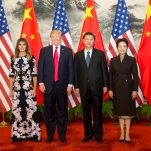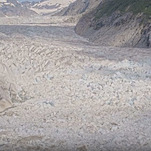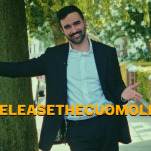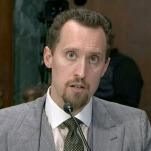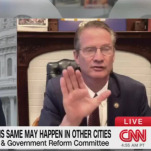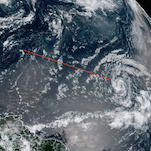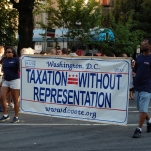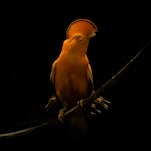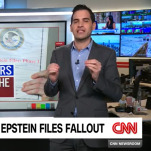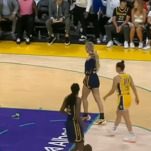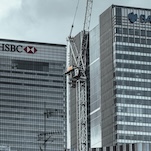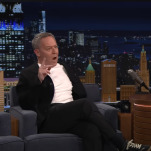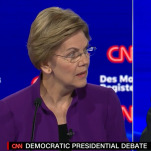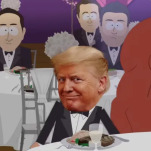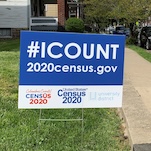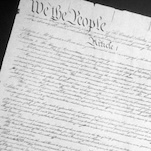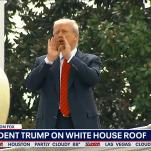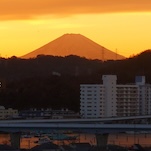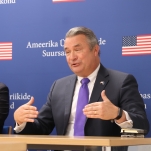Natural Hair: It's More Than a Hashtag
The decision to “go natural,” i.e. the decision to wear one’s hair in its natural state free from chemical straighteners, can be both empowering and daunting. What do I do with it? What products should I use? How do I style it? The mere fact that even deciding to wear one’s natural hair is regarded in some circles to be a revolutionary act speaks to deeper issues of race, class and the idea of beauty.
Chris Rock famously explored the history and politics of curly and kinky hair in his documentary, “Good Hair.” The film was awarded a special jury prize for documentaries at the Sundance Film Festival in 2009, and put the conversations that were once limited to street corner barber shops and ’round-the-way beauty salons out in the open.
Just last Fall, “The Talk” host Sheryl Underwood came under fire for comments she made regarding “nasty, nappy afro hair” for which she later apologized (but not before the Twitterverse exploded). And who can forget that controversial cover of the New Yorker, in which First Lady Michelle Obama is depicted sporting a large afro and army fatigues in an attempt to convey “The Politics of Fear.” Or how so many people, most of them African-American women, who should have been praising Gabrielle Douglas’ gold-medal winning performance in the 2012 Olympics, instead chose to make nasty, derogatory comments about the texture of her hair.
People with naturally curly and kinky hair have long relied on straighteners, hot combs and chemical relaxers to achieve sleek, silky tresses; arguably as a way to appear acceptable and polished. As Tiya Miles, chairwoman of the Department of Afro-American and African Studies at the University of Michigan told CNN in an article, “Historically, the difference of black hair texture has symbolized the inferiority of black people in the minds of some whites and even some blacks. Naturally kinky hair was viewed as dirty, unkempt and unattractive into the mid-20th century.”
But as millennial women have come of age, a paradigm shift has taken place. More than ever, black and brown ladies (and gentlemen!) who have everything from wavy to curly to kinky, have chosen to abandon the chemicals, love the hair they were born with, and cross over to #teamnatural.
Recent data from global research firm Mintel backs up the claim that natural just might be the new normal in haircare. The report shows that chemical relaxers now account for just 21% of Black haircare sales and the sector has declined 26% since 2008 and 15% since 2011 when sales reached $179 million, the only category not to see growth.
“The natural hair trend is driving an increase in sales of styling products such as styling moisturizers, setting lotions, curl creams, pomades, etc., but the increase has caused the relaxer segment to decline in sales,” said Tonya Roberts, multicultural analyst at Mintel, in the report. “A look at expenditures from 2008-2013 shows steady growth in the Black haircare category for all categories except relaxers/perms.”
From Lupita Nyong’o and her short cropped natural ‘fro, to Melissa Harris-Perry delivering the nightly news sporting a variety of natural braids and twists; and even Beyonce doing her signature surfboardt at the Grammys with wet, natural ringlets; it certainly appears that natural hair has gone mainstream.
-

-

-

-

-

-

-

-

-

-

-

-

-

-

-

-

-

-

-

-

-

-

-

-

-

-

-

-

-

-

-

-

-

-

-

-

-

-

-

-

-

-

-

-

-

-

-

-

-

-

-

-

-

-

-

-

-

-

-

-

-

-

-

-

-

-

-

-

-

-

-

-

-

-

-

-

-

-

-

-

-

-

-

-

-

-

-

-

-

-

-

-

-

-

-

-

-

-

-

-

-

-

-

-

-

-

-

-
















































































